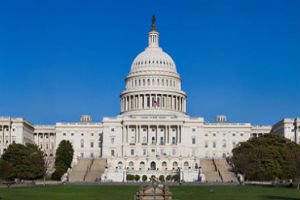Representatives from a spectrum of tax-exempt organizations testified before Congress on Thursday morning, urging lawmakers to scrap proposed regulations for fear that they would brand any social welfare advocacy as restricted political activity.
Nearly 100,000 comments were filed before the period for comments ended last night. The Treasury Department issued proposed regulations in November to address political activity for 501(c)(4) social welfare organizations. The Internal Revenue Service (IRS) came under intense scrutiny last summer after it was revealed that the tax agency singled out some (c)(4) organizations inappropriately and applications, which once took months to get approved, where taking years.
Nonprofit leaders are afraid that the new rules for 501(c)(4) organizations also would restrict the already limited ability to lobby by 501(c)(3) charities but also stress that more clarity is needed in the current rules. A panel of six witnesses testified for nearly two hours before the House Oversight and Government Reform Committee’s Subcommittee on Economic Growth, Job Creation & Regulatory Affairs.
Subcommittee Chairman Jim Jordan (R-Ohio) and Darrell (R-Calif.), chairman of the House Oversight and Government Reform Committee, requested earlier this month that IRS Commissioner John Koskinen withdraw the regulation. “When you leave things ambiguous and undefined, that’s when these fistfights break out” on The Hill, said Ranking Member Matt Cartwright (D-Pa.).
Jenny Beth Martin, president and co-founder of Tea Party Patriots, told the subcommittee that her organization finally received its tax-exempt status yesterday via a letter from the IRS, a process that took some three years. If the proposed regulations go into effect, she said gaining tax-exemption would be “absolutely meaningless” because they are so restrictive.
“As part of our commitment to supporting responsible practice, Independent Sector has for some time been concerned about lack of clarity in the rules surrounding political activity by 501(c)(4) social welfare organizations,” said Independent Sector President and CEO Diana Aviv. “We believe the problems with the current rules and regulations governing political activity by nonprofit organizations must be appropriately corrected, in order to provide clear unambiguous guidance for charitable and social welfare organizations,” she told the subcommittee. Under current law, tax-exempt organizations and regulators “lack a clear definition of candidate-related political activities or a clearly defined threshold for how much political activity is permissible,” she said.
The proposal doesn’t deal with partisan, political activity but extends the definition to fundamental nonpartisan issue advocacy, according to Gabriel Rottman, legislative counsel and policy advisor for the American Civil Liberties Union (ACLU). “It would be one thing if we were talking about partisan politicking, but it’s about regulating issue advocacy by social welfare groups,” he said.
Nonpartisan activity such as voter registration efforts, get-out-the-vote (GOTV) campaigns, voter guides and candidate forums by social welfare organizations, like the League of Women Voters, would be considered political. There also were concerns about limiting communications within 60 days of an election. Anything even mentioning a candidate could be considered political activity.
“Regulations attempt to cover charitable events such as informational conferences and galas, which are key to education the public about public policy. If a candidate shows up at an event, a 501(c)(4) would reasonably fear that its event may be counted a political activity,” said Allen Dickerson, legal director, Center for Competitive Politics. Proposed regulations could classify the vast amount of issue advocacy as political activity and do very little to tamp down on the phenomenon that caused them to be proposed.
“This rule will limit our ability to communicate with our members and will create a de facto blackout period during which our government will be less accountable to the people it serves,” said Wayne Allard, a former Republican U.S. Senator from Colorado and now vice president of government relations at the American Motorcyclists Association (AMA), which represents the interests of an estimated 27 million motorcyclists. “New guidance would force the AMA either to muzzle its advocacy efforts or lose its status as a tax-exempt organization,” he said.
